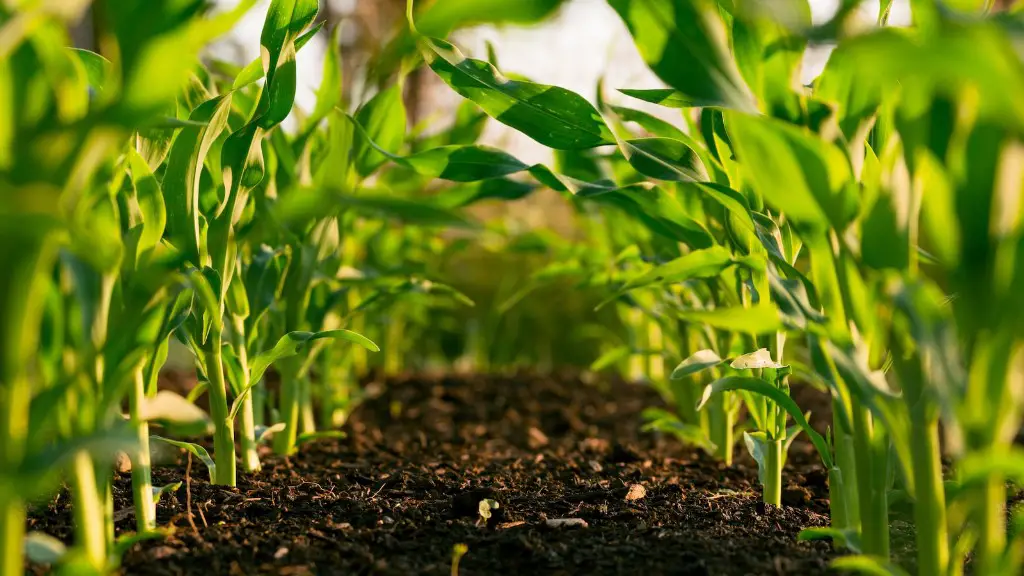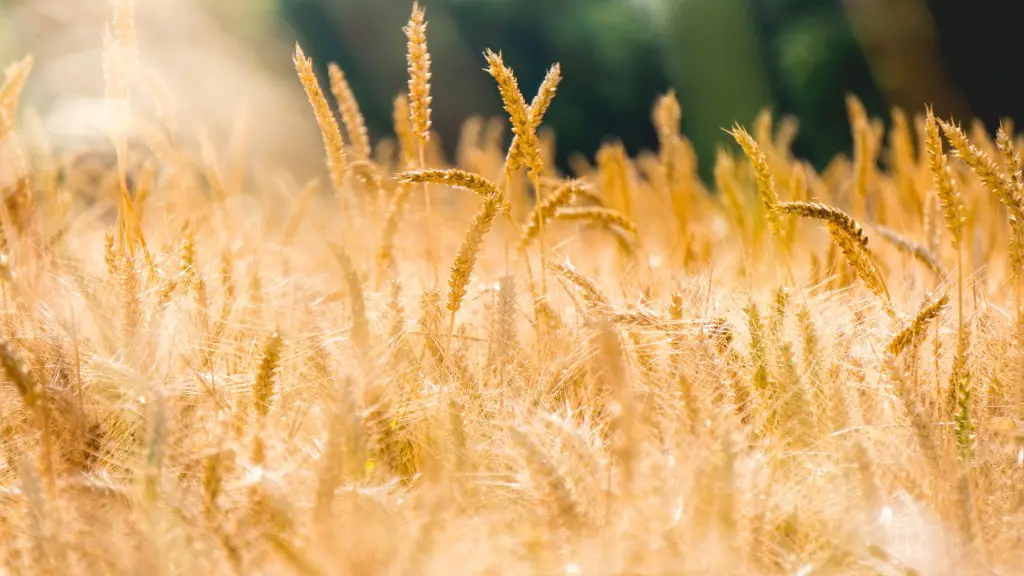Agriculture has helped humans to survive since the dawn of time. While it has undeniably provided many benefits, it is also not without its downsides. From the use of environmentally harmful fertilizers and pesticides to the displacement of rural communities due to large-scale plantation operations, the consequences of farming can be severe. Yet despite its potential for negative impacts, agriculture is still generally considered beneficial to society and necessary for our future.
At its core, modern Agriculture is a beneficial venture. It provides food to a rapidly growing population, creates jobs and wealth, and provides important ecological services such as carbon storage and soil fertility. From an economic standpoint, the most notable benefit of Agriculture is that it creates jobs and stimulates economic growth. This can help to reduce poverty and create better opportunities for those living in rural areas.
Despite its potential benefits, Agriculture also has some notable downsides. For instance, modern farming techniques often require large amounts of energy and resources, such as water, fertilizer and pesticides. These inputs have a serious environmental impact, such as air and water pollution, soil degradation and the loss of wildlife habitat. Furthermore, agricultural chemicals can pose a health risk to farmers, their families and consumers if not used carefully.
Furthermore, large-scale industrial farming operations often result in the displacement of rural communities. This can cause disruption to traditional lifestyles, social structures and cultural diversity. Additionally, the industrialization of agriculture has led to the ‘monocropping’ of land, where the same crop is grown over large areas. This has led to a decrease in biodiversity, as well as an increased risk of plant diseases.
Despite its potential for negative impacts, agriculture is still generally considered to be a net benefit to society. As populations continue to grow and urbanize, it is essential that modern farming techniques are used to provide enough food to meet the growing demand. Ultimately, it is important that a balance is struck between the need to provide food and the negative environmental and social costs of agricultural production.
Environmental Impact of Agriculture
The environmental impact of modern Agriculture is crucial to consider. Everything from fertilizers and pesticides to runoff from intensive farming can pay a heavy price on both the local and global environment. The use of unsustainable farming practices can damage fragile ecosystems, reduce biodiversity and exacerbate climate change, making it harder for humans to survive and thrive.
The use of chemical pesticides and fertilizers, in particular, can be devastating. These chemicals can get into the water supply and contaminate drinking water, harm aquatic species, and interfere with natural processes in the soil. Additionally, nitrogen-rich fertilizers, when used in excess, can cause toxic algal blooms in lakes and rivers, killing entire aquatic ecosystems.
High-intensity farming can also lead to soil erosion, contributing to desertification and the loss of productive land. Land management practices such as preserving soil, preventing runoff, and maintaining crop diversity all help to protect land from the degrading effects of modern Agriculture.
Climate change, caused in large part by the emissions of greenhouse gases, is also a major threat to modern Agriculture. The effects of rising temperatures, and more frequent and intense weather events, such as drought, flooding and higher winds, can reduce crop yields and devastate livelihoods and communities worldwide.
Fortunately, there are steps that farmers and policymakers can take to reduce the environmental impact of modern Agriculture. For instance, using non-toxic fertilizers, limiting the use of chemical pesticides and adopting sustainable land management practices are all important steps towards a greener and more sustainable farming system.
Social Impact of Agriculture
Agriculture also has important social implications. Large-scale industrial farms often require vast swaths of land, resulting in the displacement of local communities who have traditionally relied on the land for their livelihoods. The loss of traditional ways of life and cultural diversity can have a devastating impact, not only on these communities but also on our understanding of our world.
These industrial farms can also put pressure on resources such as clean drinking water. The use of water for irrigation, as well as for washing and cooling machinery and livestock, can drastically reduce the availability of clean water for nearby communities. This can cause serious health risks, such as waterborne diseases, for those living near these farms.
In addition, industrial farms often require the use of labor-saving machinery. This has led to a decrease in rural employment, resulting in underemployment and poverty for those who can no longer make a living from the land. Furthermore, these farms can also have a long-term negative impacts on the fertility of soil, resulting in decreased crop yields.
To address these issues, nations and international organizations should focus on improving access to land and resources for rural communities, as well as providing better access to education and job training. By tackling these issues, it may be possible to create a more equitable and sustainable agricultural system.
Economic Impact of Agriculture
Agriculture plays a fundamental role in economics. Most obviously, it provides food to feed a growing population, as well as creating jobs and contributing to economic growth. From an economic standpoint, the most notable benefit of modern Agriculture is that it creates jobs. Farming jobs, in particular, are often well-paying, providing a valuable source of income for rural communities that may otherwise struggle to find decent employment.
Agriculture is also a key source of income for many governments. In developing countries, for example, farming and agricultural exports can provide much-needed foreign income. Additionally, tax revenue from agricultural inputs, such as fertilizers and pesticides, can provide a valuable source of income for government programs.
In industrialized countries, Agriculture can be a major contributor to the economy. For example, US Agriculture accounts for 2.2% of GDP and provides 1 in 12 jobs, generating over $772 billion in economic output. This is dependent, of course, on the availability of arable land and the right climate, as well as adequate inputs and infrastructure, such as roads and irrigation systems.
On an international level, Agriculture is an important source of trade. As populations around the world continue to grow, so too does the demand for agricultural products. This is leading to an increasing reliance on international trade, as countries import and export food to meet the demands of their citizens.
Nevertheless, modern Agriculture does have its drawbacks. Farming can be costly due to inputs such as labor and machinery, as well as energy and water. Furthermore, large-scale industrial farming operations can require considerable government subsidies, which can affect the overall economic efficiency of the system.
Political Impact of Agriculture
The political implications of Agriculture are varied and far reaching. In developing countries, for instance, access to land and resources is often politically charged. Land grabs, for instance, where large amounts of land are taken from those living and working on it to create industrial farms, are becoming increasingly common.
In addition, many governments implement policies to protect and promote Agriculture. These policies can range from providing financial subsidies and incentives to protecting public lands. This can have major implications for the environment, as well as for the economic and social fabric of a country.
International organizations, such as the World Bank and the United Nations, also play an important role in promoting sustainable Agriculture. Through the use of various initiatives, such as the Global Agriculture and Food Security Programme, these organizations promote policies and investments that create a more equitable and sustainable food system.
Agriculture is also a major driver of foreign policy. At the international level, countries must navigate a complex system of agreements and treaties in order to ensure their agricultural interests are met. Additionally, the use of sanctions, such as the US sanctions against Venezuela, can have widespread impacts on the livelihoods of farmers, as well as the wider economy.
Overall, Agriculture has the potential to be both a blessing and a curse. It provides food, jobs and wealth, and is essential for our future. Yet it also has the potential for severe negative impacts, both politically, socially and environmentally.





